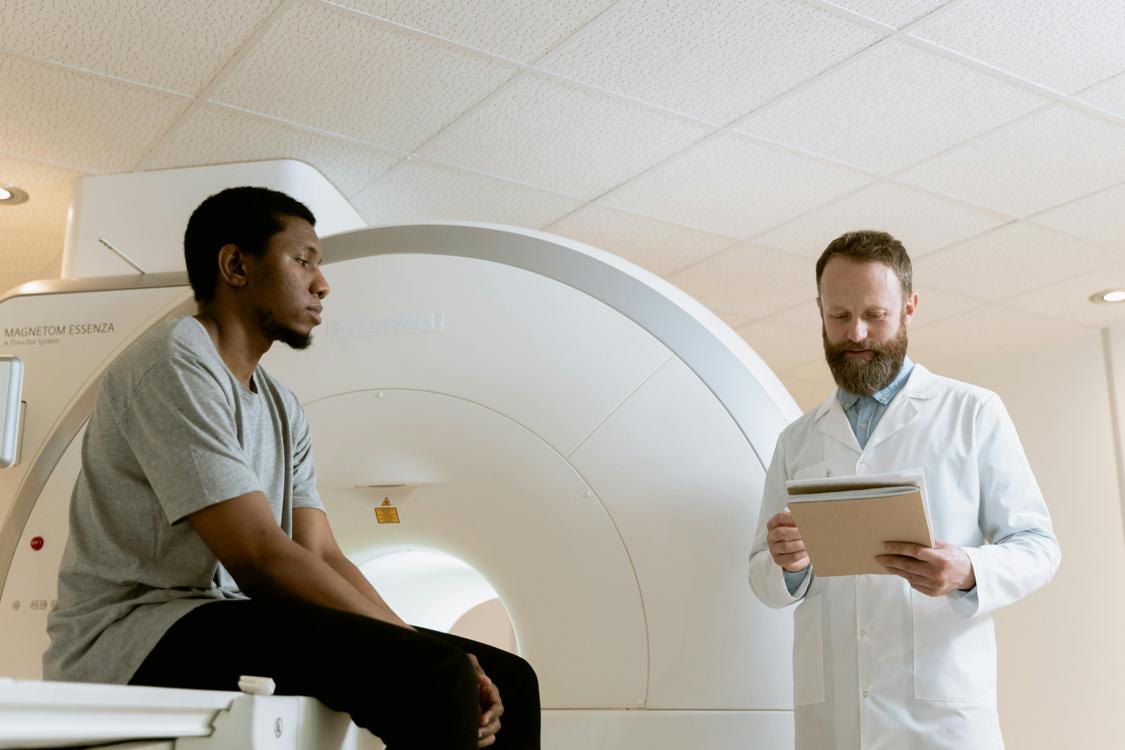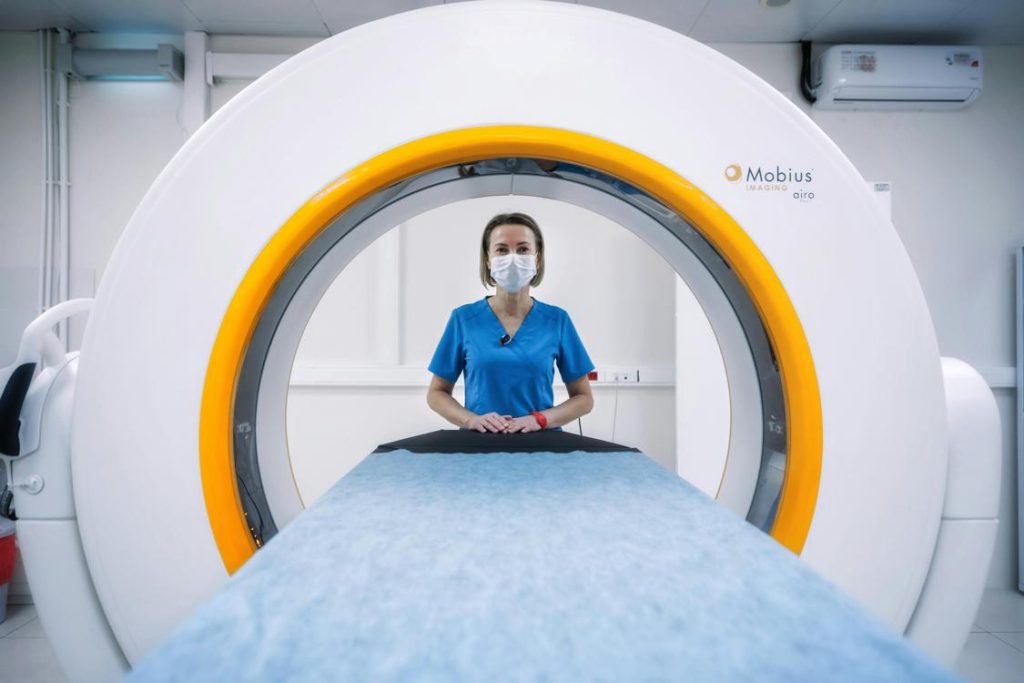Magnetic Resonance Imaging (MRI) is a powerful diagnostic tool that has revolutionized the field of medicine. This non-invasive, painless procedure allows doctors to obtain detailed images of the body’s internal structures, aiding in the diagnosis and treatment of various medical conditions. While an MRI is relatively risk-free, it can still be a daunting experience for some people, especially those who are undergoing the procedure for the first time. To help you prepare for your first MRI, we’ve put together a list of 10 essential facts you should know before your appointment.
Understanding the Basics of MRI Technology
Before delving into the specifics of what to expect during your MRI, it’s helpful to have a basic understanding of how the technology works. MRI machines use powerful magnets and radio waves to create detailed images of the body’s internal structures. The magnetic field generated by the machine aligns the hydrogen atoms in your body, and the radio waves cause these atoms to emit signals that are then captured and processed by a computer to create the images. Unlike X-rays or CT scans, MRI does not use ionizing radiation, making it a safer option for many patients.
Removing All Metal Objects Is Crucial
One of the most important things to remember before your MRI is to remove all metal objects from your body. This includes obvious items like jewelry, watches, coins, and keys, as well as less apparent objects such as hairpins, dentures, and hearing aids. The strong magnetic field generated by the MRI machine can attract metal objects, causing them to move or heat up, which can be dangerous and potentially cause injuries. You will also be asked to complete a questionnaire to determine if you have any implanted devices or metal pins in your body, as these may interfere with the scan or pose a safety risk.
Knowing What to Expect During the Scan
It’s natural to feel nervous or anxious about your first MRI, especially if you’re unsure of what to expect. During the scan, you’ll lie down on a table that slides into a large, cylindrical machine. The machine can be quite loud, producing thumping and knocking noises that some people find disturbing. However, you’ll be provided with earplugs or music headphones to help minimize the noise. It’s crucial to remain as still as possible during the scan to ensure the images are clear and accurate. The technologist will communicate with you through an intercom, providing instructions and checking on your comfort throughout the procedure.
Dressing Appropriately for Your MRI
On the day of your MRI, including an MRI in Bucharest, it’s essential to wear loose, comfortable clothing that does not contain any metal zippers, buttons, or fasteners. In many cases, you will be asked to change into a hospital gown to ensure there are no metal objects on your clothing that could interfere with the scan. It’s best to leave jewelry, watches, and other accessories at home to avoid any potential issues. If you have any piercings or tattoos, inform the MRI staff, as some tattoo inks contain metal particles that can interact with the magnetic field.
Communicating Your Concerns and Anxieties
If you have claustrophobia or anxiety about the MRI, it’s essential to let your doctor and the MRI staff know beforehand. They may be able to prescribe sedatives or anti-anxiety medication to help you relax during the procedure. In some cases, open MRI machines, which have a larger opening and are less confining, may be an option. If you receive medication, make sure to arrange for someone to drive you home after the scan, as it’s unsafe to drive while the medication is still in your system. Remember, the MRI staff is there to ensure your comfort and safety, so don’t hesitate to communicate any concerns or discomfort you may experience.
Understanding the Purpose and Importance of Your MRI
MRI scans are used to diagnose a wide range of medical conditions, from soft tissue injuries and spinal problems to tumors and neurological disorders. Your doctor will explain the specific reason for your MRI and what they hope to learn from the results. Understanding the purpose of your scan can help you appreciate the importance of the procedure and may ease some of your anxiety. If you have any questions about why you need an MRI or what the results may mean for your health, don’t hesitate to ask your doctor for clarification.
Being Honest and Thorough About Your Medical History
When you arrive for your MRI, you will be asked to fill out a detailed questionnaire about your medical history. It’s crucial to be honest and thorough when completing this form, as certain medical conditions, implants, or foreign objects in your body can affect the safety and quality of the scan. Be sure to mention any metal implants, such as pacemakers, cochlear implants, or artificial joints, as well as any recent surgeries or medical procedures. If you have a history of kidney problems, inform the staff, as some MRI scans require the use of a contrast dye, which can be harmful to people with impaired kidney function.
Preparing for the Possibility of Contrast Dye Injection
In some cases, your doctor may order an MRI with contrast, which involves the injection of a special dye into your bloodstream. This dye helps to enhance the clarity and detail of certain tissues and blood vessels, making it easier to identify abnormalities or disease. While contrast dye is generally safe, some people may experience mild side effects such as itching, nausea, or a headache. In rare cases, more severe allergic reactions can occur. If you have any known allergies or have previously had a reaction to contrast dye, inform your doctor and the MRI staff before the procedure.
Knowing the Duration and What to Expect After the Scan

The length of your MRI will depend on the specific area of the body being scanned and the complexity of the images required. Most scans take between 30 and 60 minutes, but some may last up to 90 minutes or longer. During the scan, you will be able to communicate with the technologist through an intercom, and they will provide you with instructions and updates on the progress of the scan. Once the MRI is complete, you can usually resume your normal activities immediately. In some cases, if you have received sedation or contrast dye, you may be asked to stay for observation for a short period to ensure you are not experiencing any adverse reactions.
Receiving and Understanding Your MRI Results
After your MRI, the images will be analyzed by a radiologist, a doctor who specializes in interpreting medical imaging. The radiologist will create a detailed report of their findings and send it to your referring physician. Your doctor will then review the results with you and explain what they mean for your health and any potential next steps in your care. It’s important to ask questions and voice any concerns you may have about the results to ensure you have a clear understanding of your diagnosis and treatment options.
In conclusion, undergoing your first MRI can be a nerve-wracking experience, but by understanding what to expect and preparing accordingly, you can help ensure a smooth and successful procedure. Remember to communicate openly with your healthcare team, follow all pre-scan instructions, and don’t hesitate to ask questions if you have any concerns. With the valuable information provided by an MRI, your doctor can make an accurate diagnosis and develop an effective treatment plan to help you achieve the best possible outcome for your health.




